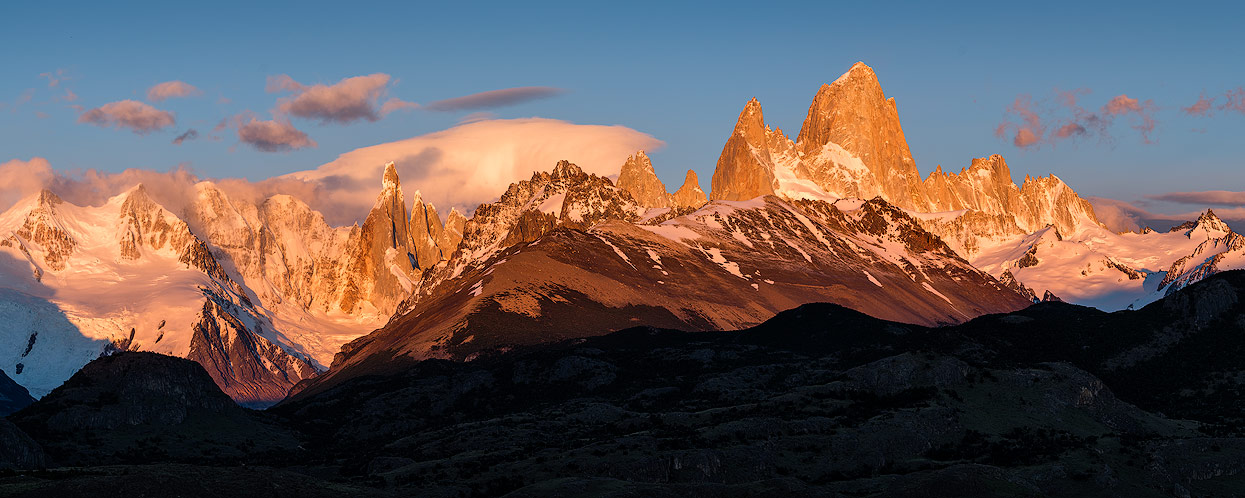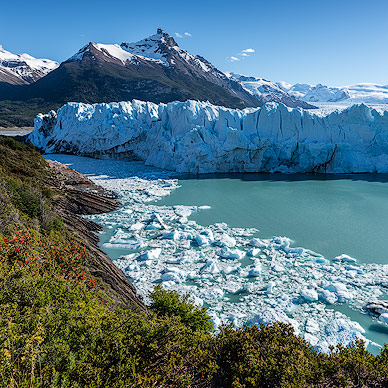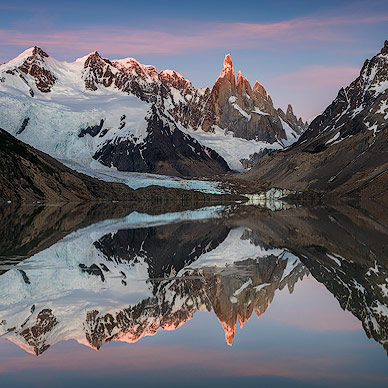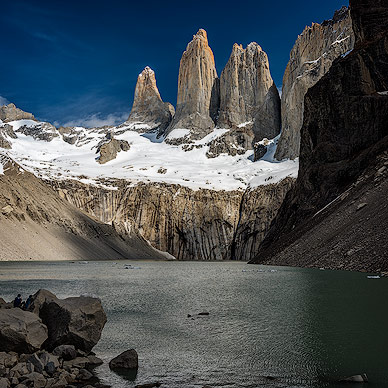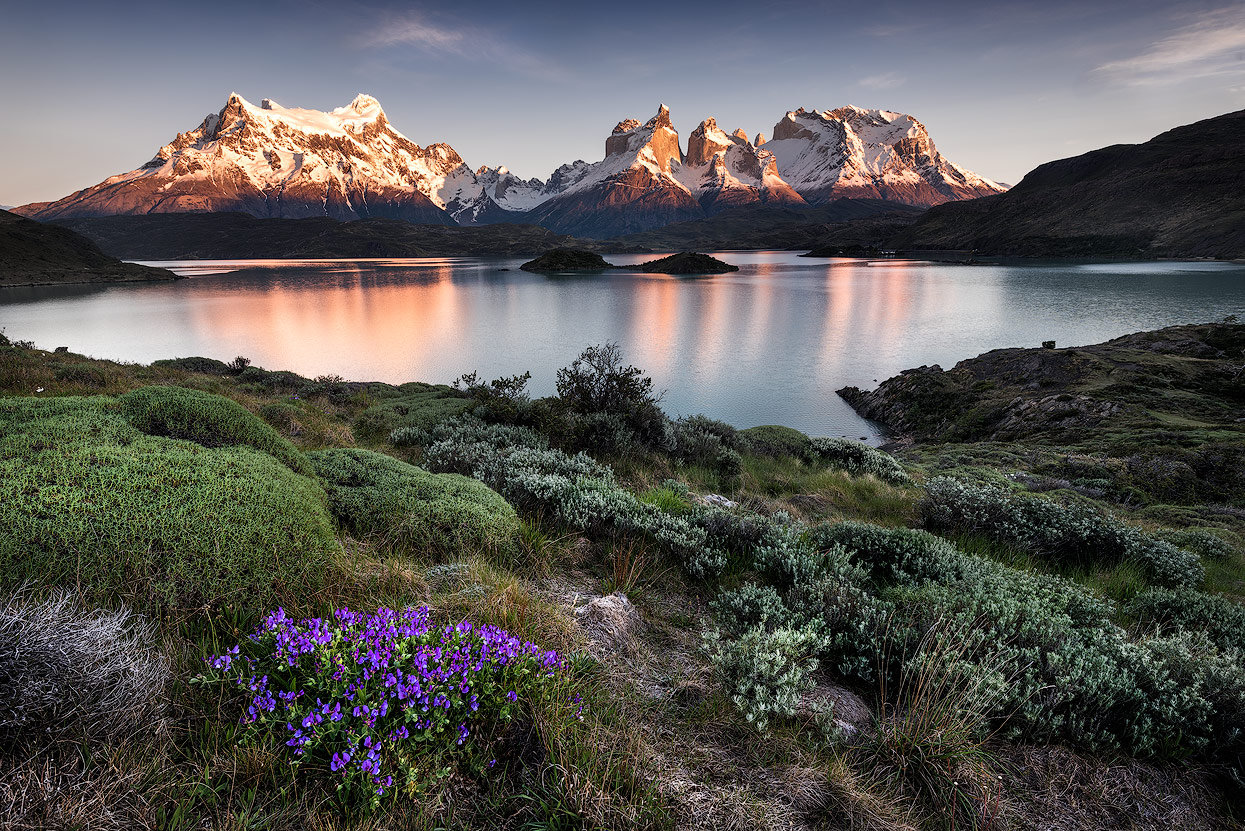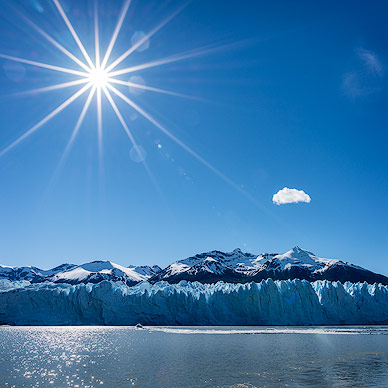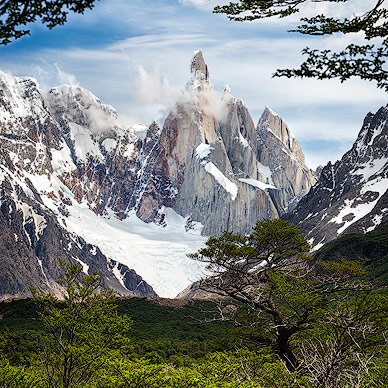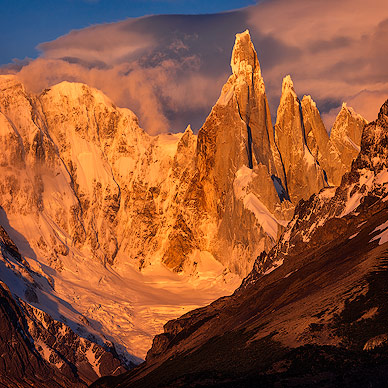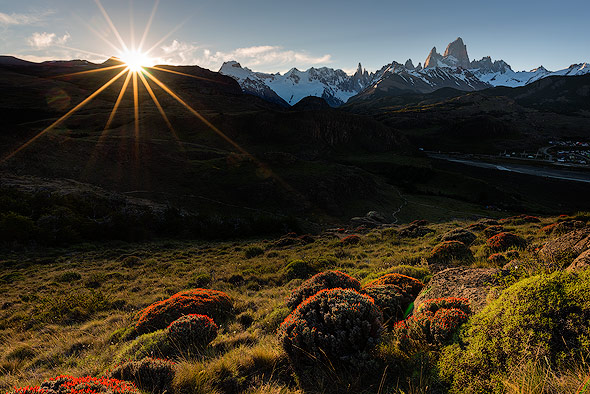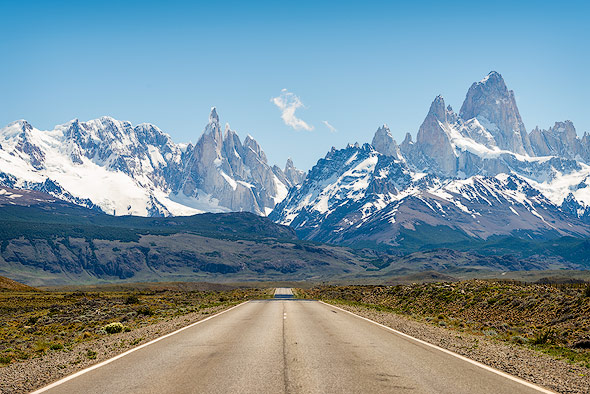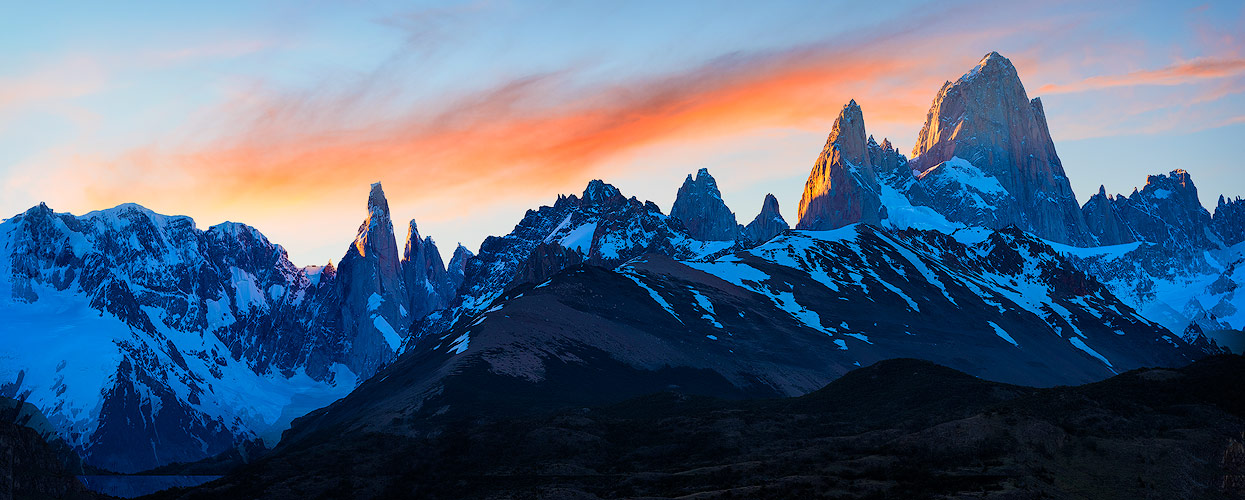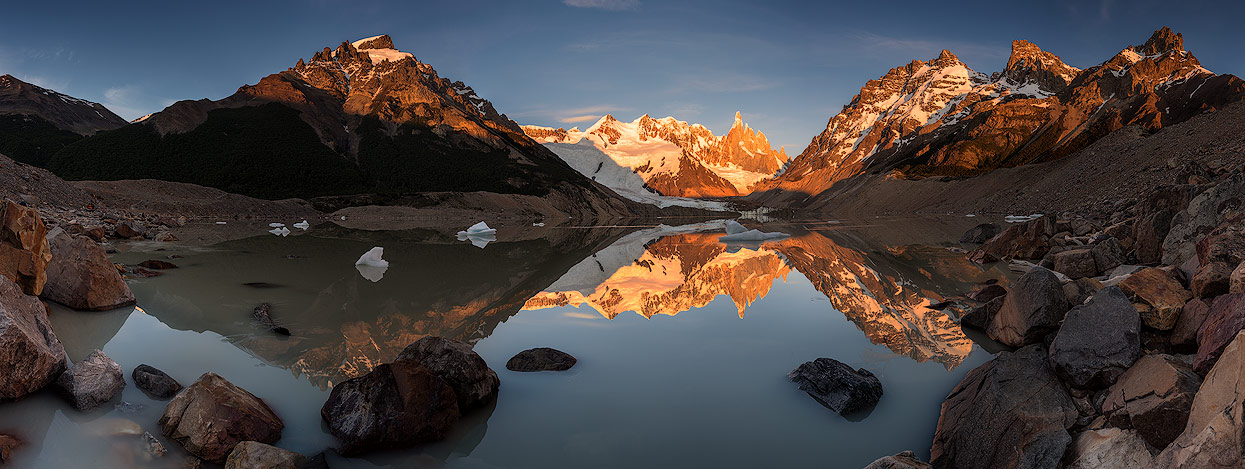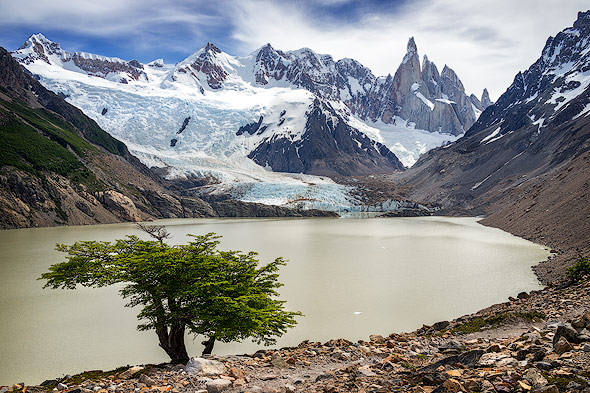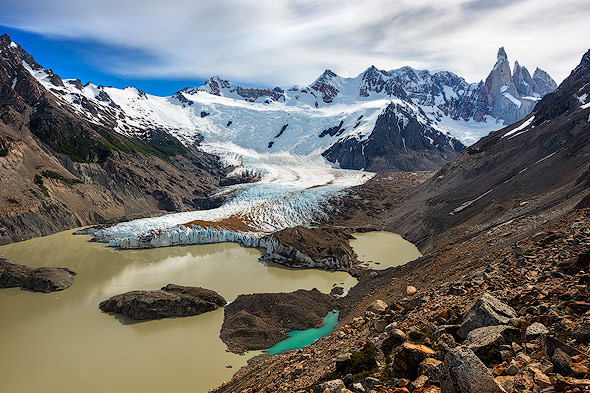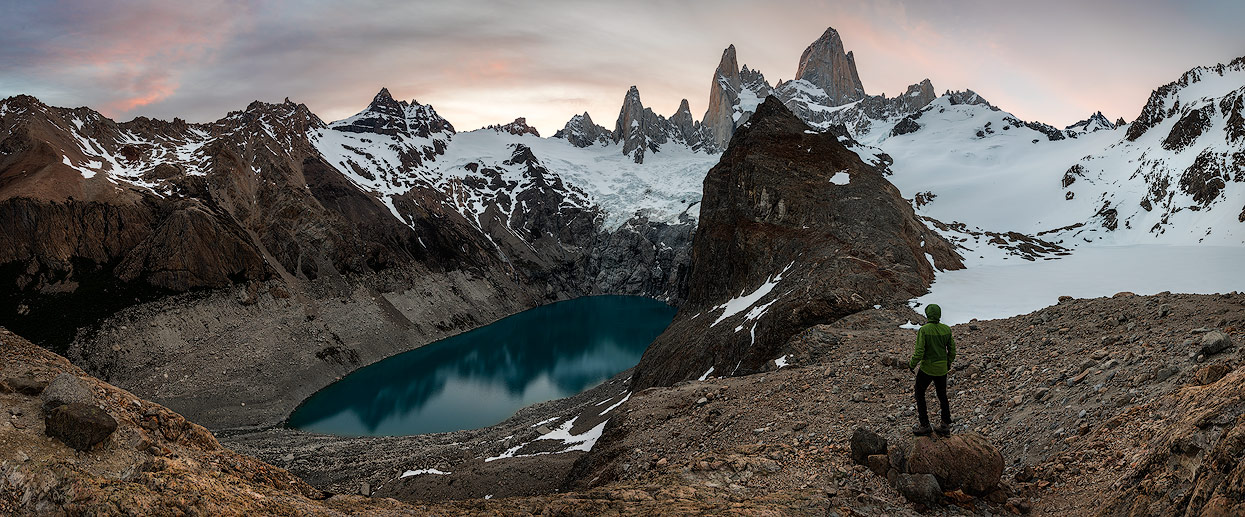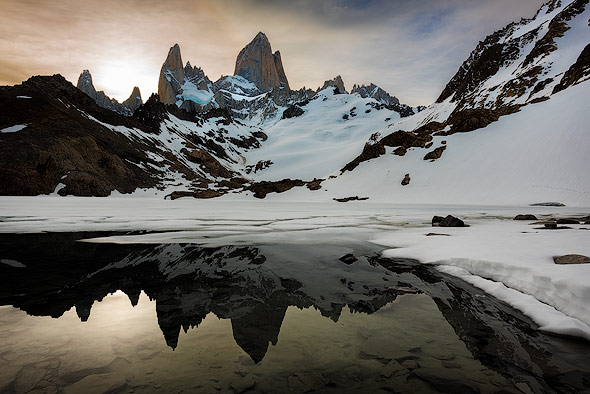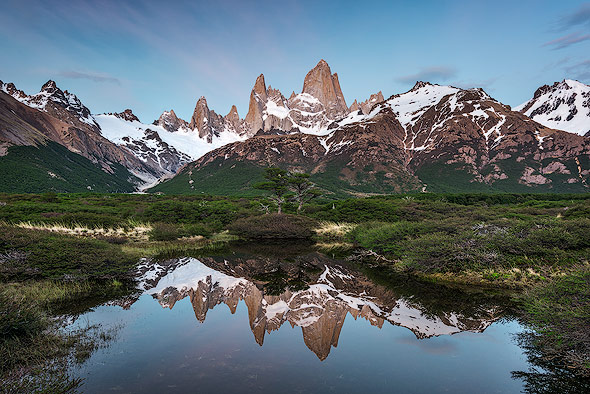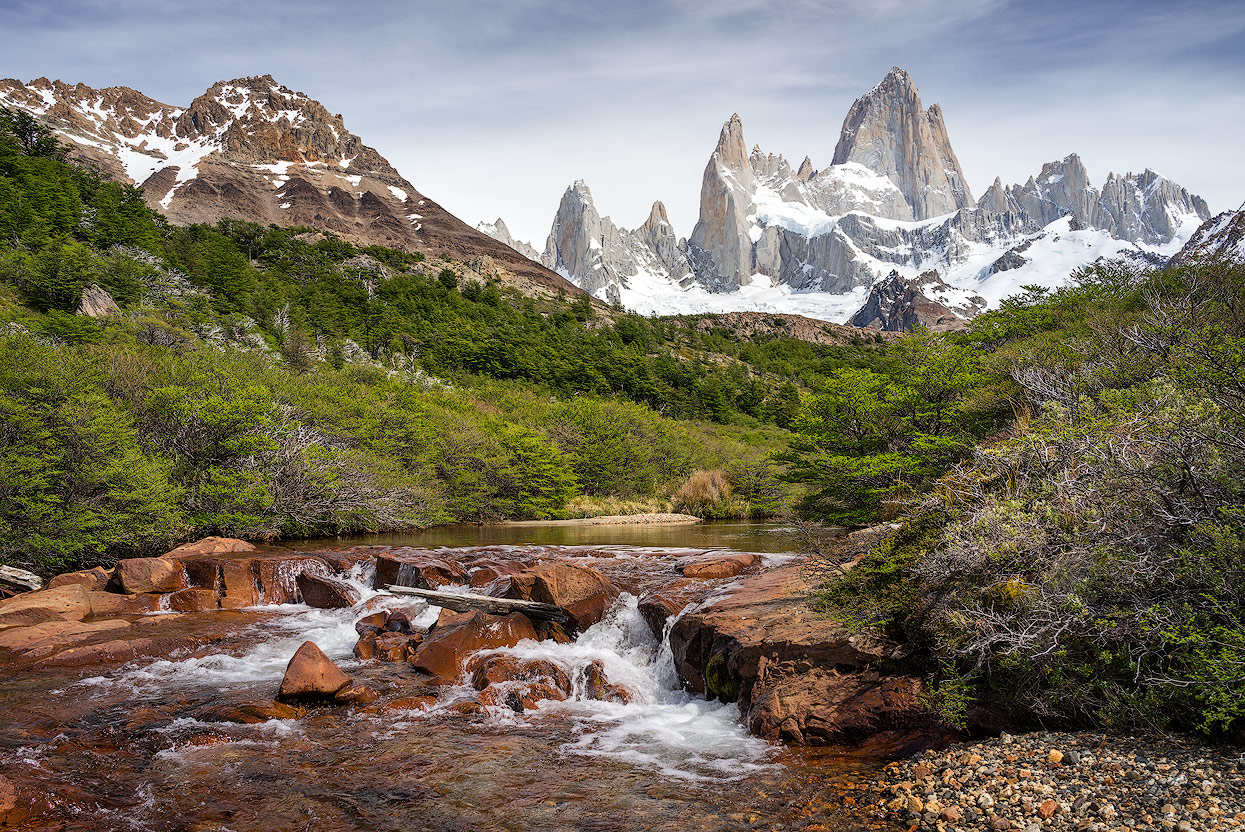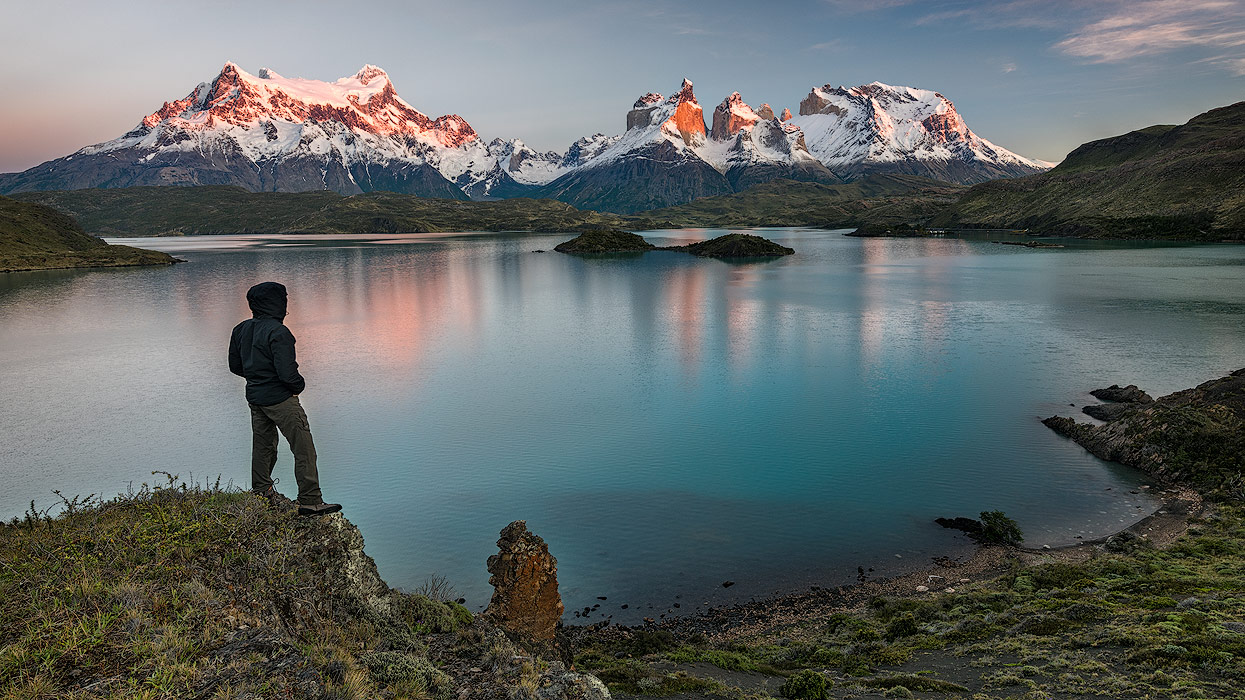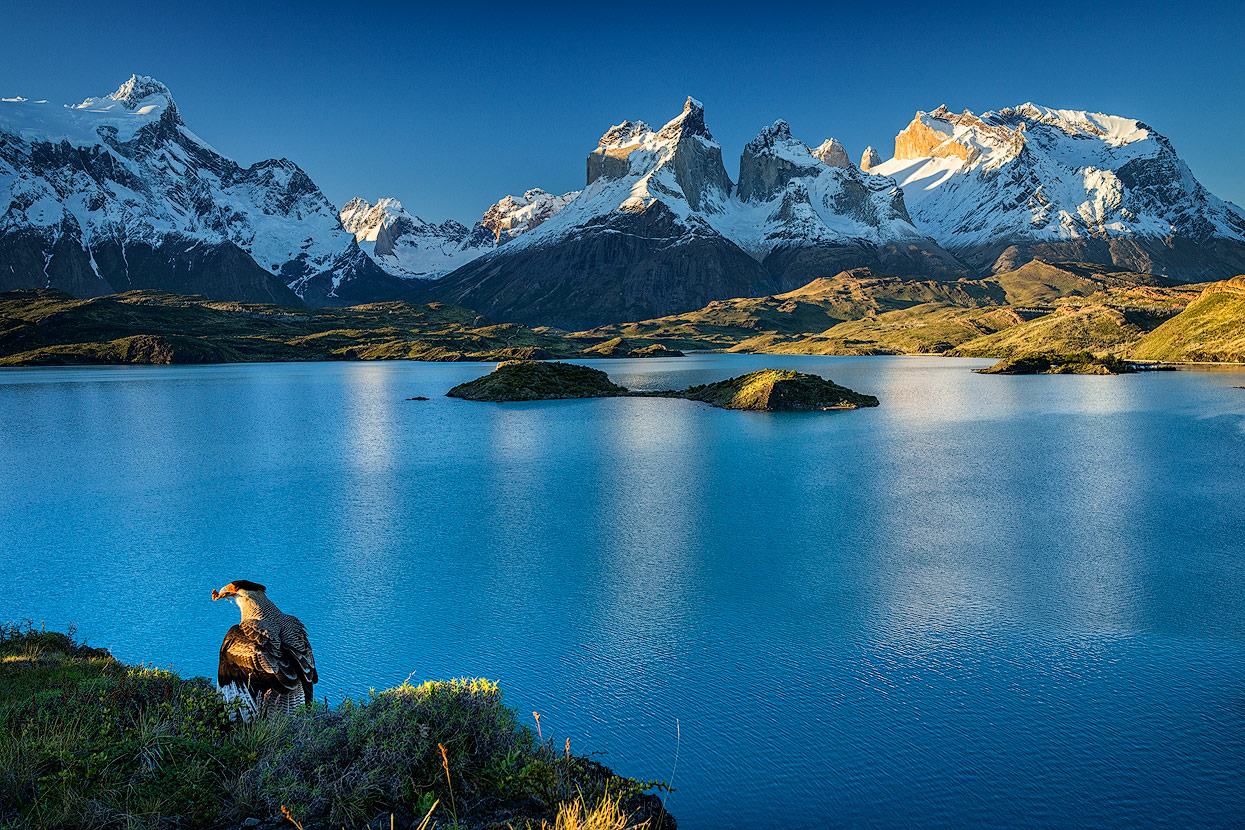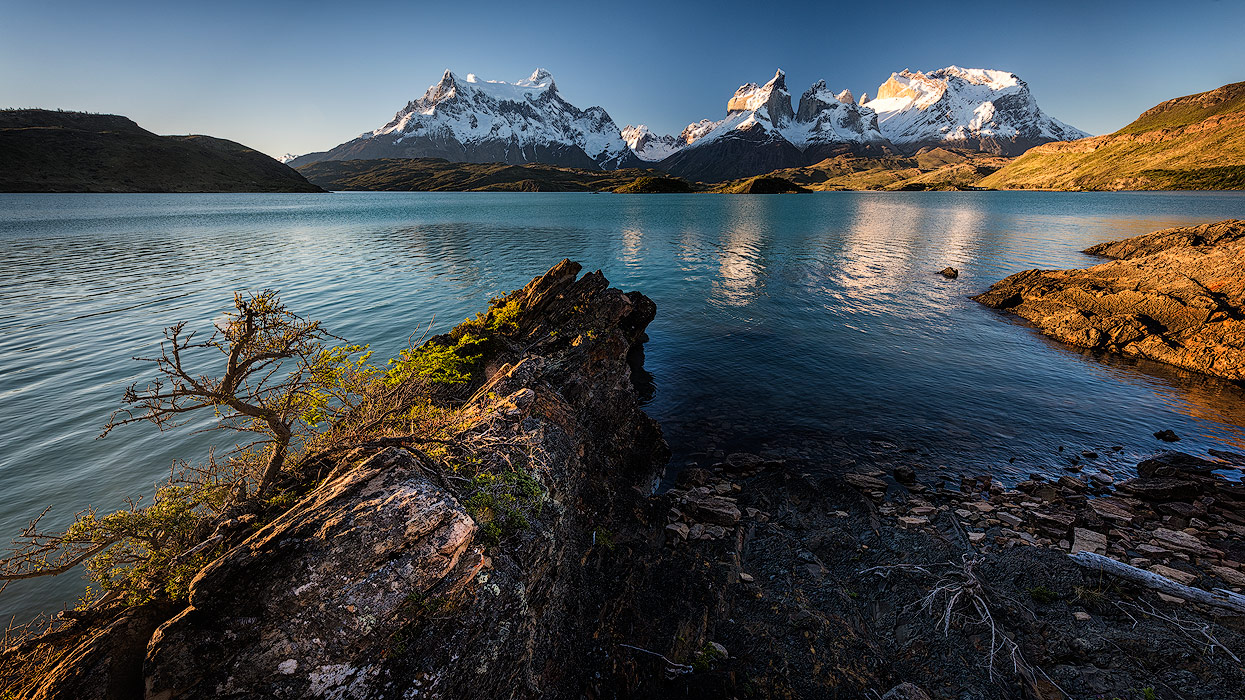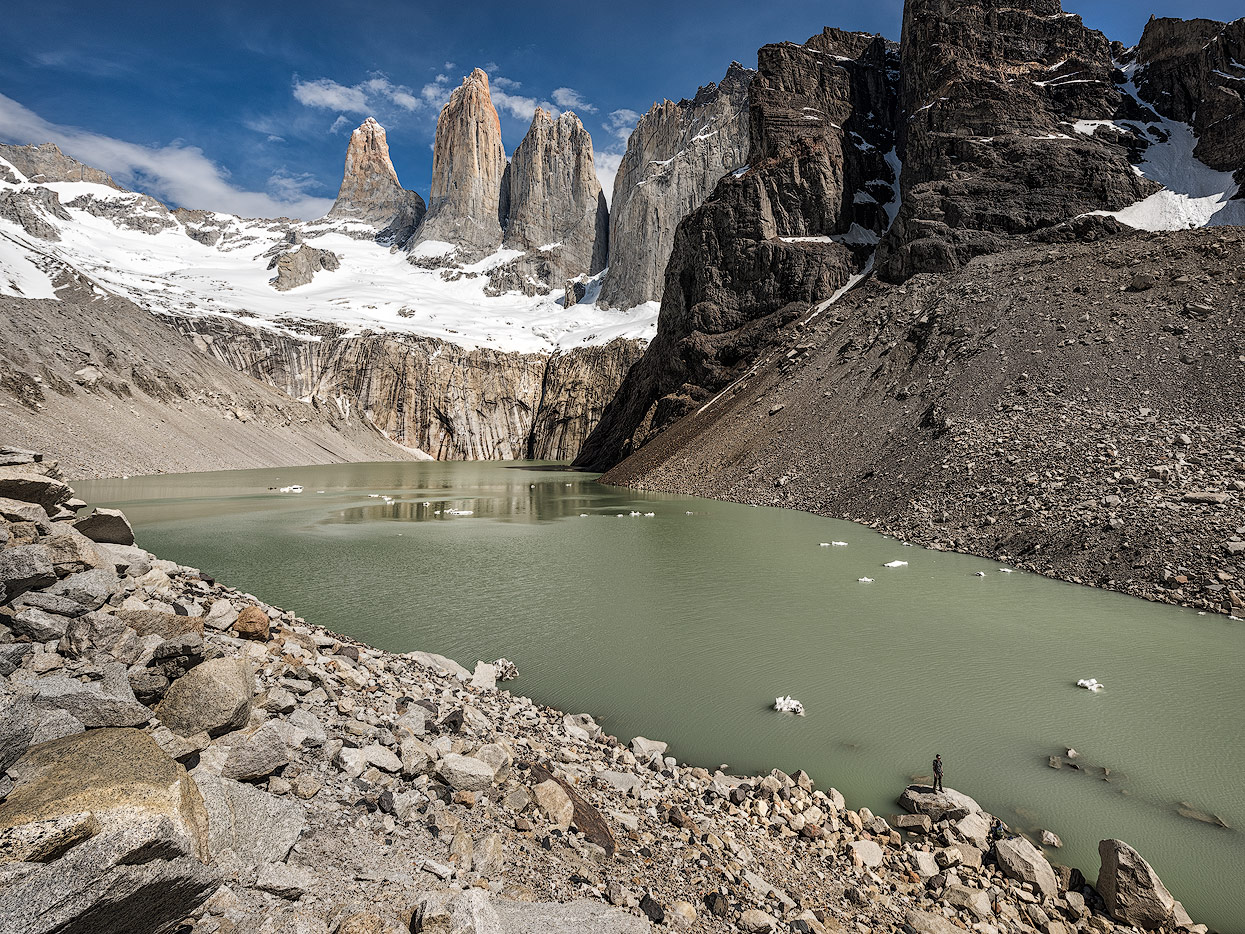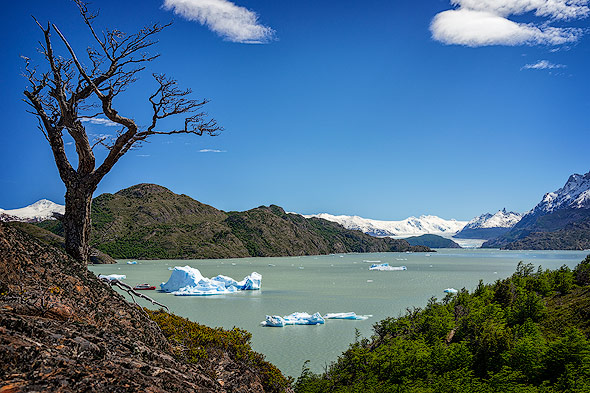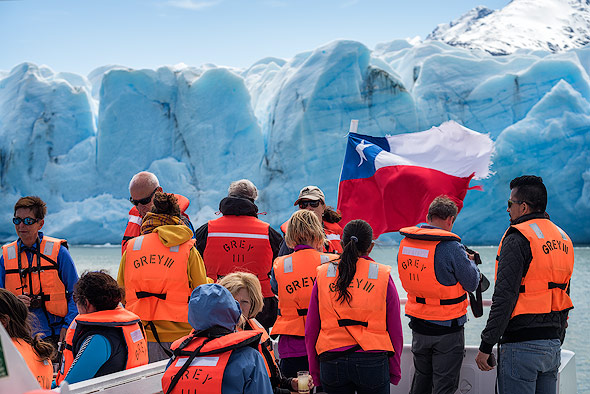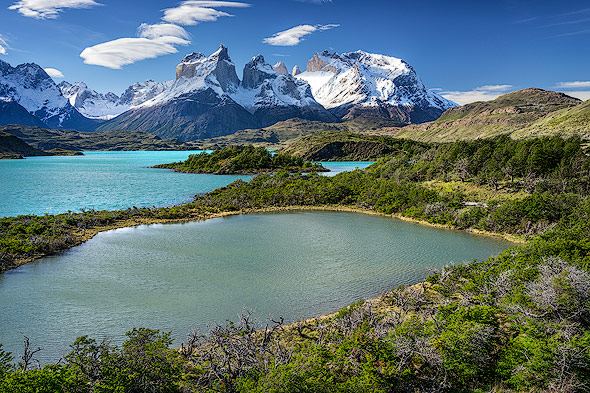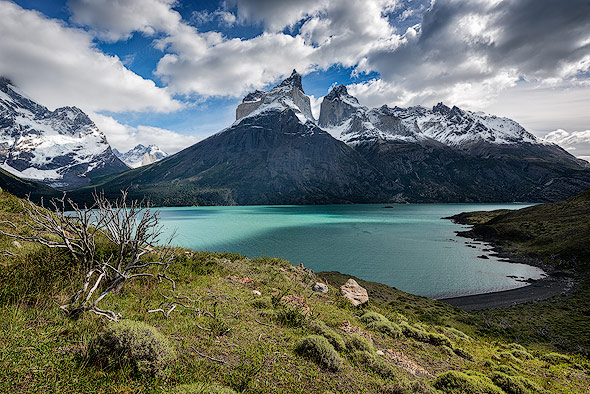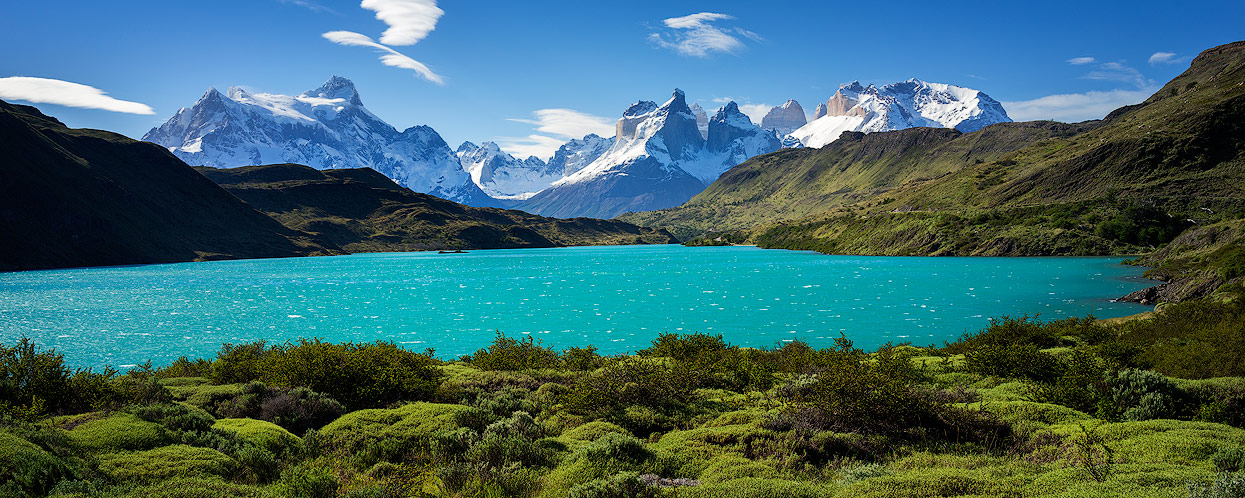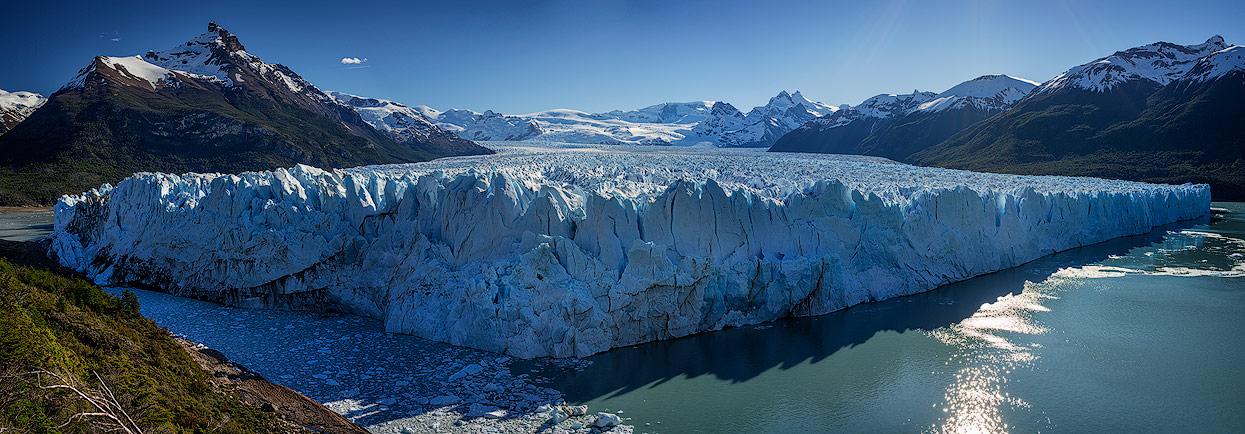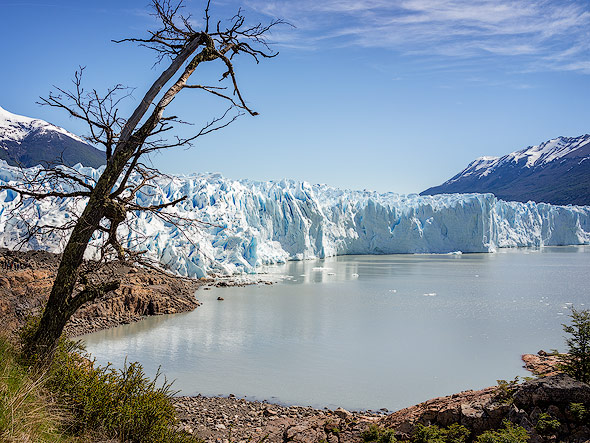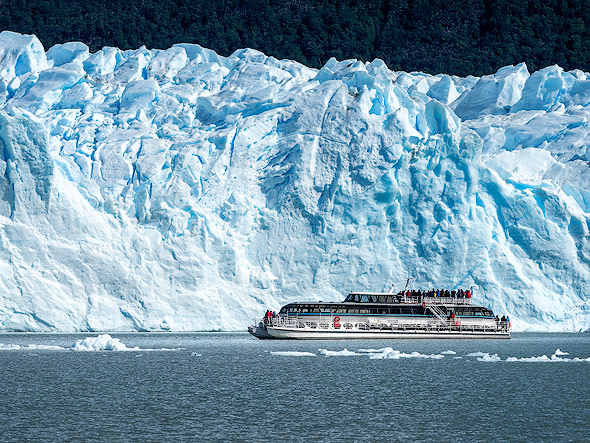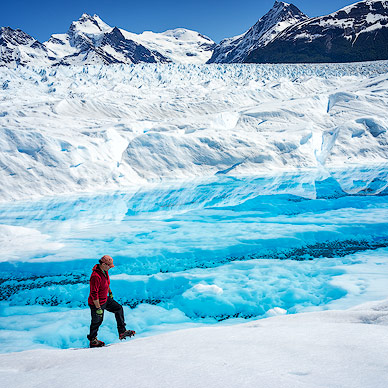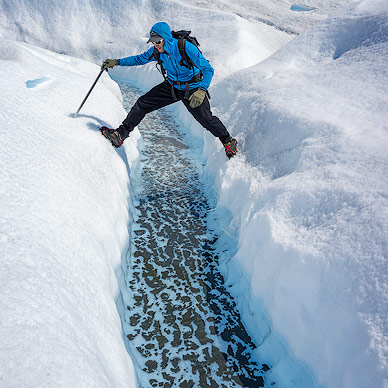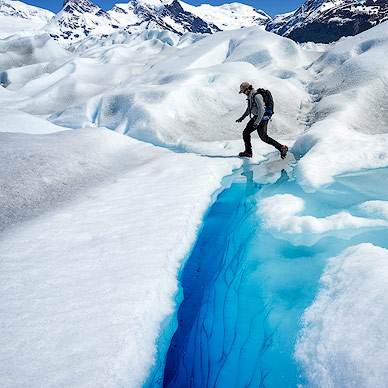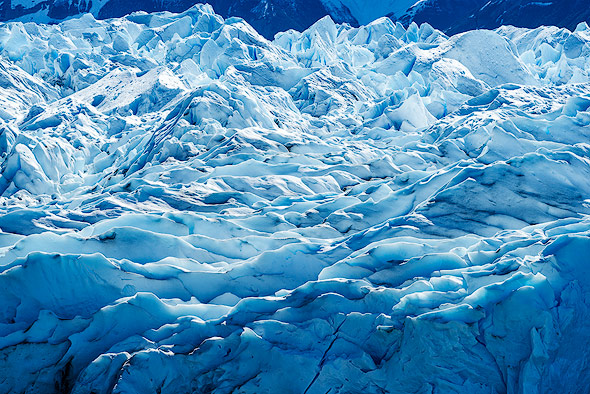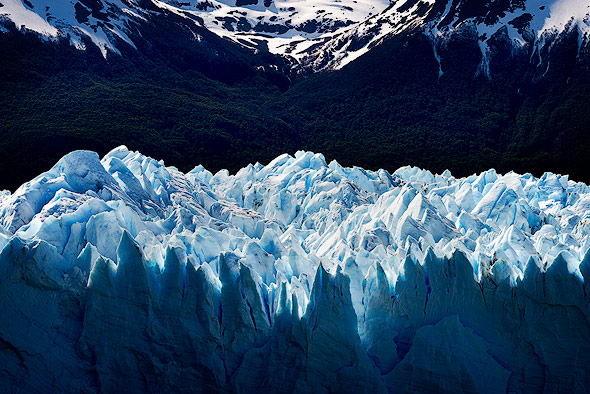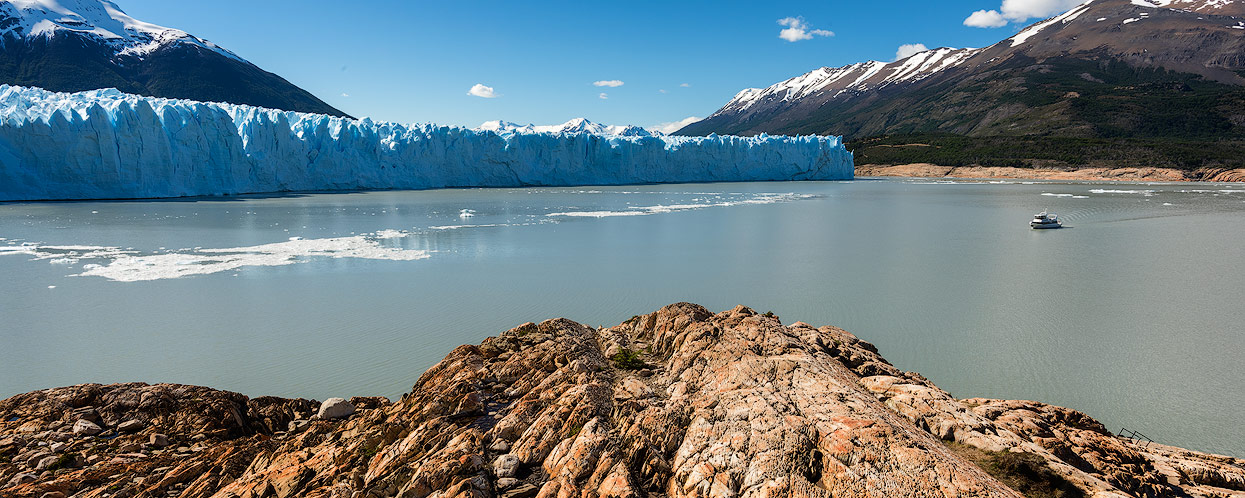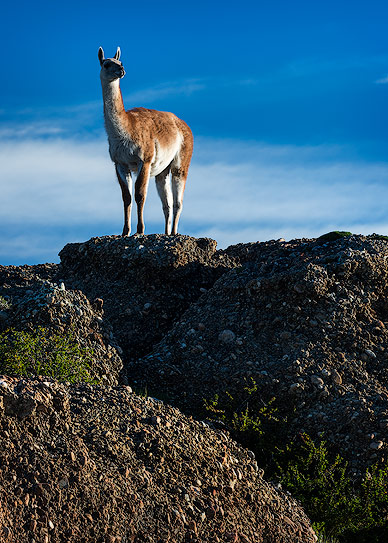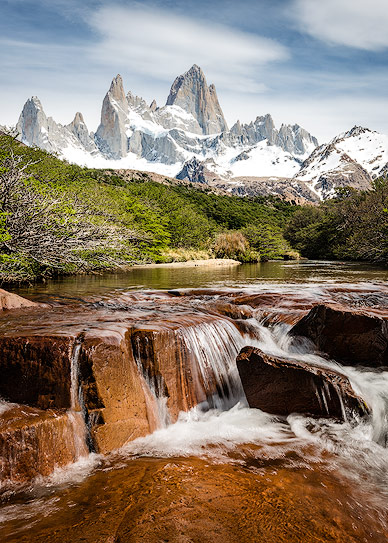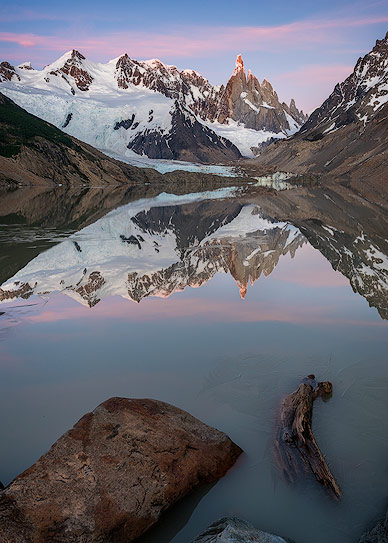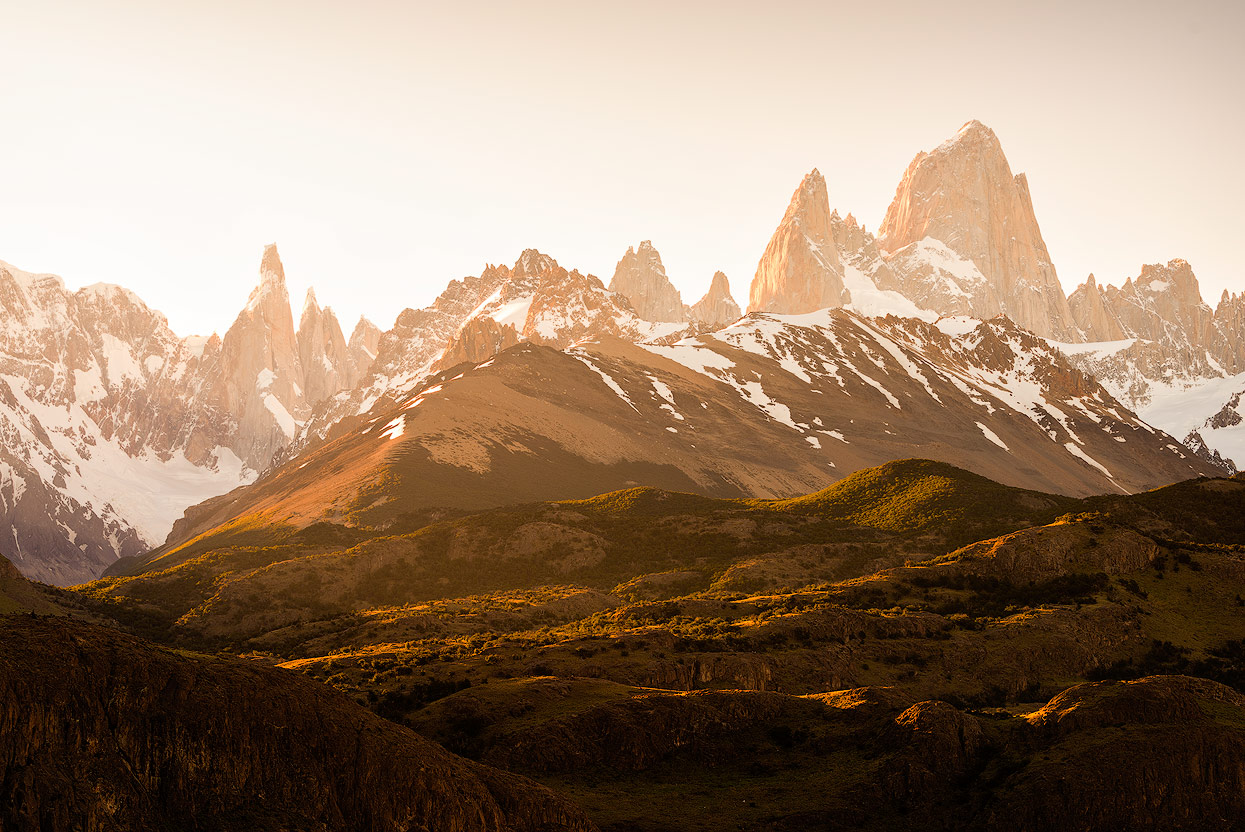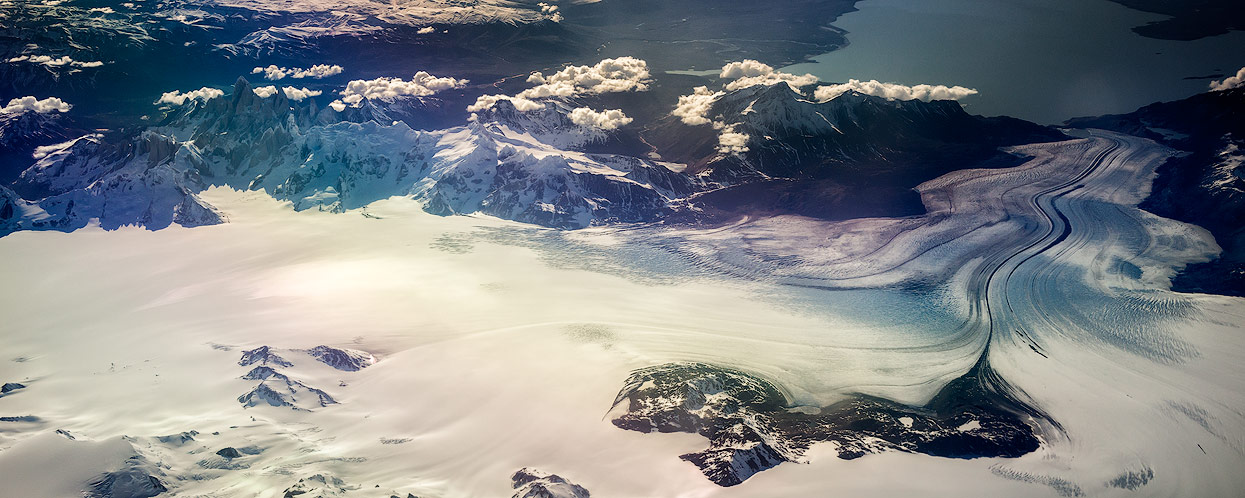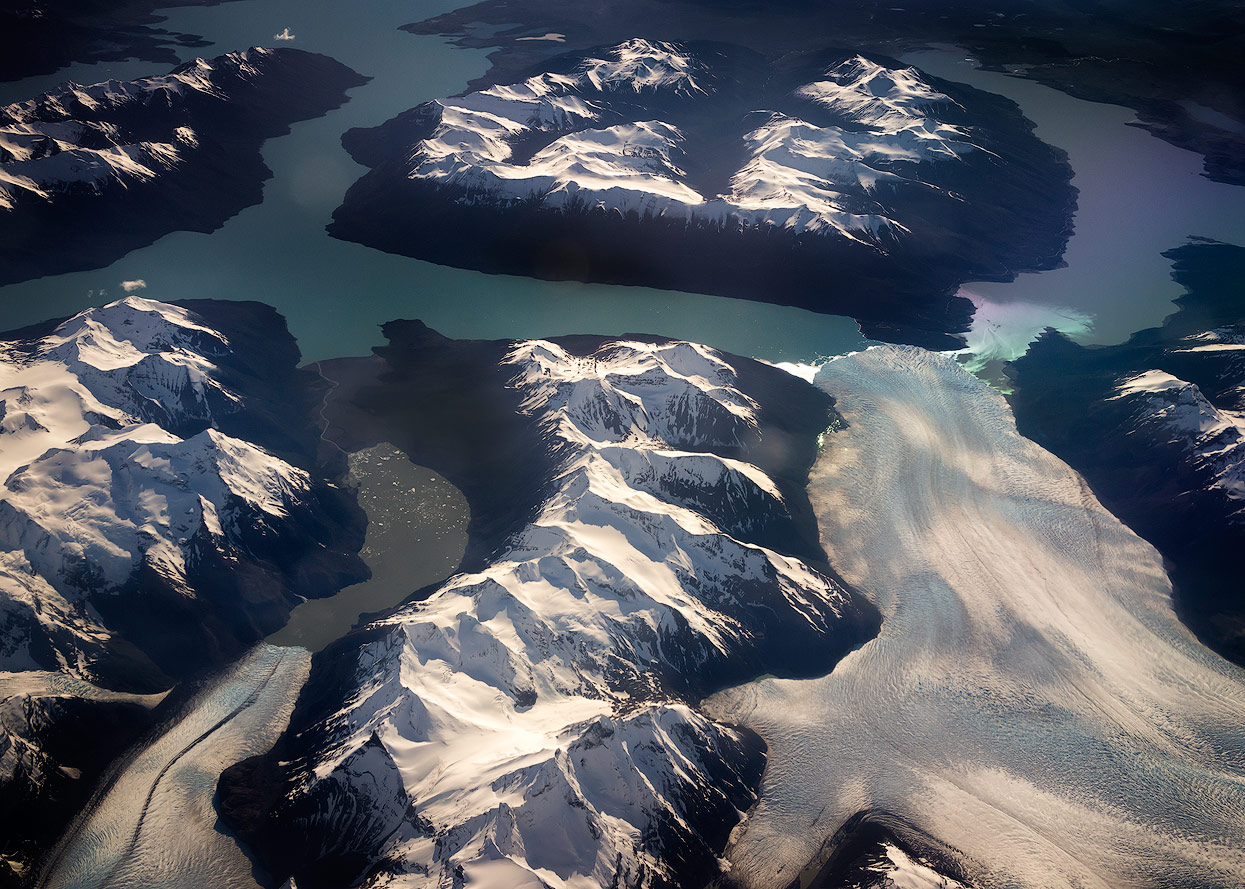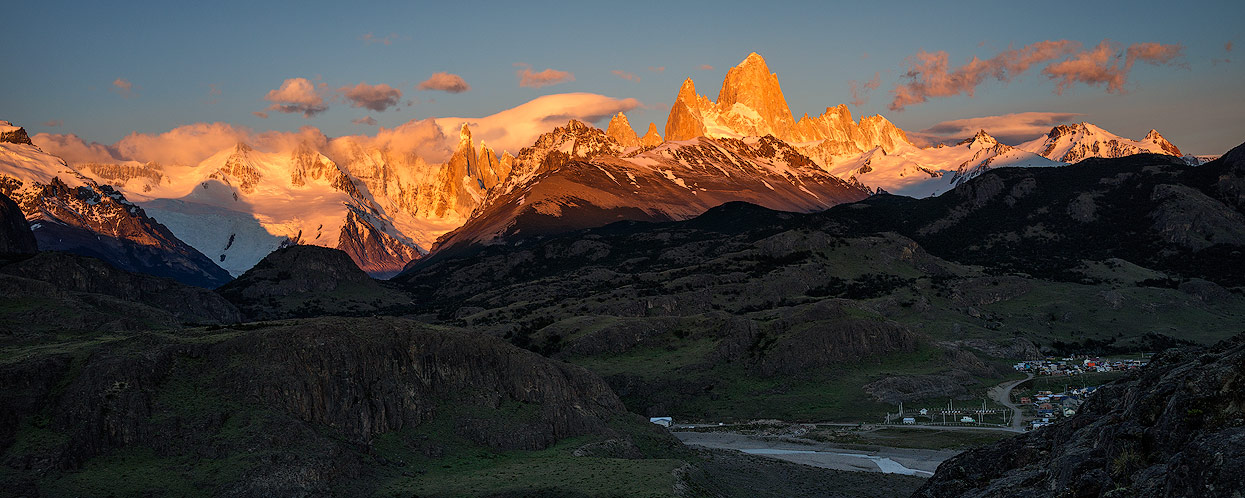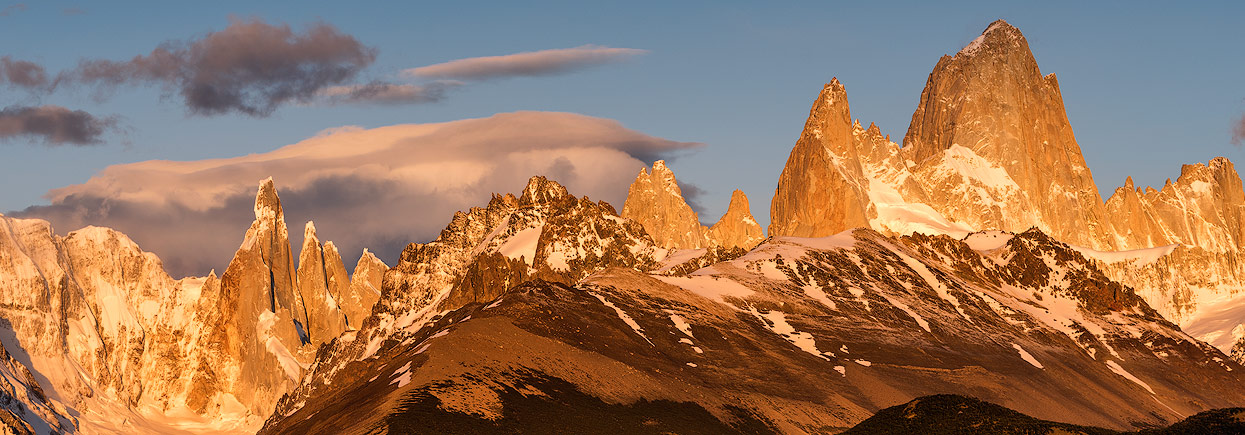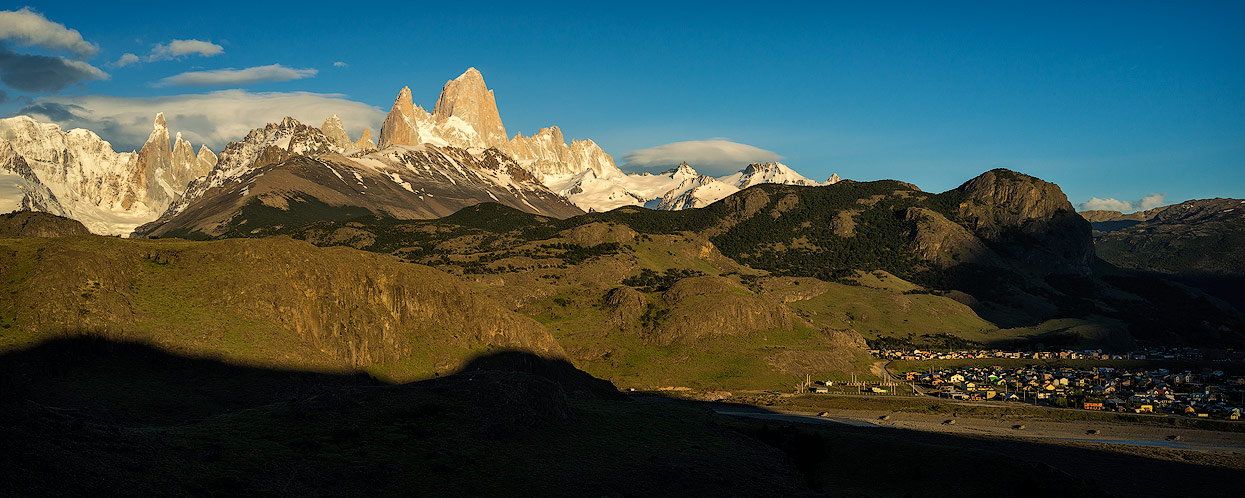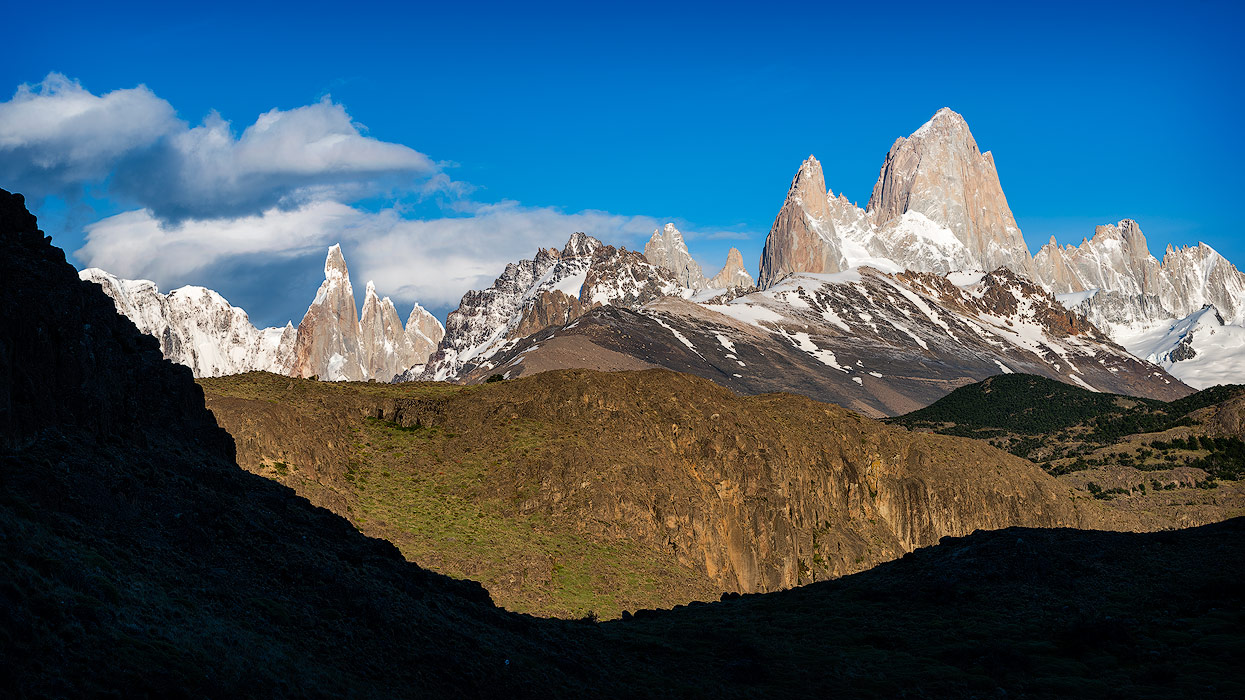Patagonia
With the trip to Patagonia a long-awaited dream of mine was fulfilled. Be it the Torres del Paine National Park, the unique Perito Moreno glacier or the two granite giants Cerro Torre and Fitz Roy, Patagonia is a paradise for every nature and outdoor lover.
BEST OF PATAGONIA
A Patagonia trip is a «once in a lifetime» experience for most travelers. You should tackle the journey in a well prepared and well informed manner. I would like to pass on my experiences and tips and hope that they are useful for your planning. As always, my focus is on landscape photography and outdoor adventures.
THE SEARCH FOR THE BEST PHOTO SPOTS
Finding the best photo spots in Patagonia is not too difficult. You will find enough inspiration on the known photo platforms such as 500px, Instagram, GettyImages, Fotolia, etc. and often GPS data will be provided as well. Along with Google Earth, photoephemeris.com (desktop or app) and a detailed map such as the Trekking Map 1:160’000 of terraQuest you can prepare yourself rather well and make important travel decisions in advance:
- How to get to the lookout
- Is the spot better at sunrise or sunset?
- Where are the nearest camping or parking lots?
- Do you have to cross any rivers (appropriate equipment)?
MONTE CERRO TORRE & FITZ ROY
There are many beautiful mountains in the world and luckily I already had the chance to visit some of them. However, Mount Cerro Torre and Fitz Roy in Los Glaciares Nationalpark have something very special about them that I can not put into words. Above all, I simply felt an indescribable sense of happiness about being there with these two granite giants.
ON THE WAY TO EL CHALTÉN
The trip from El Calafate to El Chaltén took a few hours, but due to the well-developed roads, this trip was much faster and more pleasant than that from Torres del Paine to El Calafate. And when the two mountains finally appeared on the horizon, not only the anticipation of the next five days, but also my pulse increased quite a bit. Before you reach El Chaltén, one or the other photo stop is worth a look. Another good choice for a photo is the straight road to the village with the mountains in the background. With a little luck, the summits are even framed by a mountain wave.
THE MOST FAMOUS VANTAGE POINT IN EL CHALTÉN
Right at the entrance to the village is the visitor center. From there you can reach the viewpoint Mirador de los Cóndores in about 20 minutes, which we visited at sunset and later again at sunrise. The view from there is simply terrific! You should include a 70-200mm lens with a Circ-Pol, ND graduated filter and a sturdy tripod in your baggage.
THE SEARCH FOR THE «OTHER» PHOTO SPOTS
The first day’s hike took us to the lookout point Loma del Pliegue Tumbado, where the goal of the hike was not actually the Mirador, but the slope on the right bank of the Rio Fitz Roy. I got the inspiration for this photo shoot from well-known photographers like Max Rive. «Off trail hiking» is a big challenge if you have never traveled the area before. Since the mountains were hidden behind thick clouds that day, we gave up the search for the perfect spot early. We still took the official trail to the Mirador, but more because we wanted a condition training as for photographic reasons. The rocky desert, the strong wind and the deep clouds at the destination were rather disappointing though.
3-DAY TREKKING: LAGO TORRE • LAGUNA DE LOS TRES • EL CHALTÉN
LAGO TORRE AND CAMPING DE AGOSTINI
On the following day, the weather improved and the forecasts for the next three days were promising. Fortunately, in El Chaltén there are several „Supermercados“ to stock up for a multi-day trekking tour, so after a busy shopping spree we headed back to the Camping de Agostini at Laguna Torre, almost at the foot of Mount Cerro Torre. By the way, you do not need to buy any water: on the way you cross several rivers, and natural water tastes even better than the one you can purchase. The hike to Lago Torre is also popular among day hikers, and so even during the off-season you will meet hundreds of tourists. When we reached the Camping de Agostini after a hike lasting several hours, we were amazed at how few people are traveling with a tent. Incidentally, no registration is required for this free campground.
With lighter luggage, we then went to the lake, also known as „iceberg beach“. The walk to the Mirador Maestri is worthwhile and offers a change of perspective. The Cerro Torre looks considerably smaller from this point, but the Glacier Grande is incredibly beautiful from this angle. Beautiful moss fields and individual trees are perfect as a foreground. However, the biggest highlight on Lago Torre is the sunrise. We were incredibly lucky because it was completely calm and we could enjoy the Cerro Torre twice thanks to the perfect reflection. There were about five photographers on site and we shared our happiness with a nod and beaming faces. We could hardly believe this beautiful view! So we had a lot of time and when the first day hikers arrived, we packed our tent and made our way to the next highlight.
LAGUNA DE LOS TRES AND CAMPAMENTO POINCENOT
The second stage of the hike from Laguna Torre to Poincenot campground is more exhausting than the first stage, but offers beautiful viewpoints. Most of the walk is in the forest and the second half leads along the lakes Laguna Hija and Laguna Madre. The Campamento Poincenot is also free of charge and does not require a registration, but it was much better visited than the campsite at Laguna Torre. Most hikers visit Laguna de los Tres as part of a day hike from El Chaltén. This leads across the campground and therefore many hikers with day luggage pass by the tents. However, we had opted for the countercyclical variant, and so we climbed up the steep and strenuous trail to Laguna de los Tres only in the late afternoon. To our great astonishment, the lake was still completely covered in snow. Unfortunately, the sunset was not quite as spectacular as hoped, though the viewpoint overlooking the lower Laguna Sucia still offered the opportunity for a beautiful panoramic view. Fortunatley we had strong headlamps for the hike back to the campsite: The nights are really pitch black!
The campground is located on the edge of a wetland. There are many smaller ponds here and in turn, Mount Fitz Roy is beautifully reflected. I chose this photo spot for sunrise – a good choice. The perfect reflection of the red-colored Fitz Roy was definitely another highlight. If the Laguna de los Tres is not covered in snow, a very early ascent for the sunrise would certainly pay off.
FITZ ROY HIDDEN FALLS
Along the small creek Arroyo del Santo there are dozens of so-called «hidden spots». A small waterfall with Fitz Roy in the background is a special choice for a photo. Although the trail follows closely but not directly along the stream it is possible and worthwhile to make a detour through the bushes here and there. Smaller trails are easily visible, because such spots are quickly known among visitors.
If you are traveling alone and want to visit these spots at sunrise, you will find enough space for a small tent between the stream and the dense shrubbery. Wild camping is actually not allowed, but those that behave quietly, leave no traces in nature and don’t use gas cookers, should still be able to do it.
In various blogs you read about Park Rangers, who also like to delete memory cards. Unfortunately I do not know whether these stories are correct or not. During the high season between December and March, more Rangers will be on the road than during the low season in November and April.
TORRES DEL PAINE
The most famous National Park in Chile attracts thousands of tourists every year. Young hikers traveling around the world meet retired all-inclusive travelers.
NATIONAL PARK RULES
The mass tourism leaves many traces. Conaf, the «Corporación Nacional Forestal» in Chile, struggles to protect nature. This results in many, many rules to stick to. Here is a small selection:
- Hiking trails must not be left
- Cooking with gas cookers is only allowed in certain places. Unfortunately, the numerous burned trees in the park clearly show why this is so.
- Hiking in the dark is not allowed (there are pumas in the national park). Even the campsite managers of Fantástico Sur did not know this rule when I mentioned it.
- In some campsites cooking (including gas cookers) is completely prohibited.
- The fact that you are not allowed to camp in the wild is probably self-evident in the face of this flood of regulations
- ...
The park rules are made stricter every year and it’s worth checking both the English and Spanish websites (as the English version is not always up-to-date) for new information / restrictions. Under no circumstances should you assume that the information in your travel guide (even if it has just been published) is current. A „normal“ permit is only valid for three days.
There are exceptions for trekking friends who are doing the W- or O-Trek. The W-Trek is also overcrowded during the off season. As a Swiss, I am used to the fact that many hikers are on popular hiking trails, but Torres del Paine is yet another league: Here you’ll partly move in a 1-column! In my opinion, the best photo stops are not on the W-Trek anyway, of course with the exception of Mirador de las Torres.
My planned spots in Torres del Paine National Park
- Mirador at campground Lago Pehoe
- Mirador de las Torres (on the W-Trek)
- Mirador Lago Grey (Grey Lake)
- Mirador Cuernos and Salto Grande Waterfall View
- Various viewpoints along the road between Refugio Pudeto and Porteria Sarmiento
Those who claim to discover new photo spots in Torres del Paine will probably be disappointed (unless you go into the „wilderness“ and thus violate almost every park rule). For the explorers among you, the Los Glaciares National Park around El Chaltén is the better choice.
Lago Pehoe
From Lago Pehoe and the campground of the same name you can enjoy a beautiful view of the mountains. Here we spent our first night in the park. You can not get enough of the breathtaking view, and this easy-to-reach viewpoint is definitely a must-go. A small challenge is the search for a suitable foreground. You look for trees in vain and you’re hoping for a bird or flowers. The lookout point is worth visiting both during sunrise and sunset, you can reach it from the campground on foot in 5-10min. Other recommended viewpoints within walking distance are Mirador Condor or the small island at Hosteria Pehoe.
Mirador de las Torres
Mirador de las Torres is located at the beginning or end of the W-Trek and with the view of the three peaks / Torres it is one of the great highlights of the National Park. Our plan was to actually reach the viewpoint on time for sunrise. Shortly before our departure, however, we learned by accident (this information was only available in Spanish on the Conaf site), that the nearby and free Conaf campsite Camping Torres remains closed for the entire season 2017⁄2018. The nearest camp site Chilena is operated by Fantástico Sur and would have cost more than $100 per person per night!
I guess even the base camp on Everest would be cheaper…
So we had to pitch our tent directly at the park entrance and thus missed the sunrise at the Mirador. During our hike we made a short detour to the campsite Camping Torres and actually saw a few tents – whether it was Conaf employees or tourists, I do not know.
The hike to the three towers has paid off even without sunrise. We had wonderful weather and I definitely did not expect to see a reflection of the Torres in the smooth lake.
Grey Lake
Along the 17km long road from Camping Pehoe to Hosteria Lago Grey you can find several places where a photo stop is definitely worth it. This luxurious hotel was built at the end of the lake on a long beach with beautiful views and attracts especially older visitors to the National Park. Depending on the season, more or less large ice floes swim in the lake. The shipping, which can be booked in the hotel (during the high season it’s usually booked out for days), is worthwhile especially for ice floes and glacier lovers.
Incidentally, the boat trip can also be used as an entry to or exit from the W-Trek.
At the ship berth at the lake there is a small observation hill Mirador Lago Grey, on which you can actually find some unburned trees to photograph. These are perfect as a foreground for a panoramic photo of Lake Grey with floating ice floes in the background.
Mirador Cuernos and Salto Grande Waterfall View
This short hike has it all – here you can experience the full power of the Patagonian wind! The first highlight is about 200m next to the parking lot: Salto Grande, the most beautiful and most accessible waterfall in the National Park. Unfortunately, you will be standing on the wrong side of the waterfall, because the mountain backdrop can not be placed as a background of the waterfall from this viewpoint.
Some top photographers, including Marc Adamus have crossed the river by crossing it with a packraft or a locally organized boat. Unfortunately, I had underestimated this spot during the planning, so that this photogenic side was completely denied for me.
It is definitely worthwhile to continue the hike to the viewpoint Mirador Cuernos, which offers several good spots. Unfortunately, the search for a suitable foreground is also a big challenge here, as most of the trees have burned down.
Between Refugio Pudeto and Porteria Sarmiento
Along the road Y-150 there are several good vantage points and it would be a wise choice to rent a car, so you can schedule spontaneous stops yourself. Here the vicunas will not only pose nearby, but often on the street as well, not necessarily to the delight of the local fast bus drivers.
Perito Moreno
No Patagonian traveler wants to miss the impressive ice wall of Perito Moreno. The glacier belongs to Los Glaciares National Park and is designed for mass tourism due to the huge influxes of visitors.
The nearby El Calafate is a good starting point for excursions to Perito Moreno – in addition to what feels like a hundred tour operators, there are also many hotels, restaurants and shops. Not only the glacier but also the Patagonian Lamb and Beef Grills (Parrilla), which are particularly tasty in the Restaurant La Tablita, are world famous.
During our flight to Punta Arenas we were already able to marvel at the sight of the glacier – the anticipation was now in full effect! The drive from Torres del Paine lasted much longer than planned because of the bad road (unfortunately we had chosen the gravel road), and so we reached El Calafate just before closing time. With a bit of luck we were still able to book the Big Ice Trekking with Hielo&Aventura for the following day.
Glacier trekking
The glacier trekking on Perito Moreno was another highlight of this Patagonia trip. We were led over the glacier by professional guides and we had the best weather. Most of the people in our small group were using crampons for the first time. The guides are also mountaineers / climbers and their interesting stories about the glacier and nature impressed us very much. Those who want to wander Perito Moreno without guides can sign up at the National Park office. A prerequisite is not only a verifiable glacier experience, but of course also suitable equipment. The Big Ice Trekking is not cheap, but absolutely worth it. Photographing takes a back seat as the experience, the impressions and the feeling of being on the world’s most famous glacier are more important.
View from the boardwalks
There will be plenty of time after the tour to walk the well-developed boardwalks at the end of the peninsula. With a bit of luck you’ll be able to see how it looks like when a piece of the glacier breaks off and creates a small tidal wave. An impressive spectacle, which definitely has addictive potential: One would like to spend hours in this place.
You could spend many weeks in Patagonia, the distances are far and travelling takes time. Most travellers who reduce Patagonia to its highlights will eventually visit the following three regions and attractions:Travel Planning
- Torres del Paine National Park in Chile
- Glacier Perito Moreno in Argentina
- Los Glaciares National Park in El Chaltén (Cerro Torre & Fitz Roy)
At least two weeks must be scheduled for these three highlights. Patagonia is known for its weather extremes and it is therefore advisable to plan a few extra days. So it’s recommended to schedule three instead of two weeks for the trip. Well, we had only two weeks available for our Patagonia trip.
However, a tight and flexible schedule also has some advantages – you want to get the most out of it and not spend hours at any remote bus stops, just because you want to safe money. The tighter the timetable, the greater the effort for travel planning and preparation should be. The factor „weather“ is something you can’t influence when you’re in Patagonia, and so you will need some good fortune.
The best travel time
- Avoid the high season between December and February.
- For landscape photographers April is considered the best month: The Patagonian autumn brings golden colors and beautiful and warm light. Most tourists have already left in April, which is another advantage.
- Even November (Spring) has its advantages. The flowers are blooming and the mountain peaks as well as some mountain lakes are still frozen or covered with ice. For our trip we had chosen November.
Traveling to Patagonia
- A flight to El Calafate is only possible from Argentina (for example Buenos Aires) and usually more expensive than the flights from Santiago to Punta Arenas, but you are already at the starting point to Perito Moreno. For the drive from El Chaltén over the border to Punta Arenas you have to plan at least 10 hours. Do not underestimate the sometimes long waiting times at the customs, especially if you’re traveling with a rental car.
- One-way car rentals are possible with most car rental companies and are offered in El Calafate and Punta Arenas – but only for an additional charge.
Whether your first destination is Punta Arenas or El Calafate ...
- With a rental car you will save time and be flexible, especially in Torres del Paine National Park. When reserving, it is important to indicate that the car is being driven across the border so that the car rental company can prepare the necessary documents. In El Chaltén, a car is not essential.
- A light four-season tent as well as weatherproof and warm clothing are obligatory.
- Camping equipment and food can be found in larger towns such as Punta Arenas, Puerto Natales, El Calafate or El Chaltén. Torres del Paine National Park has few shopping options.
Aerial view
The first panoramic photo I could already shoot from the plane – it had been worthwhile to insist on a window seat in the left row of seats. This is just an advice in case you also book a flight from Santiago to Punta Arenas.
